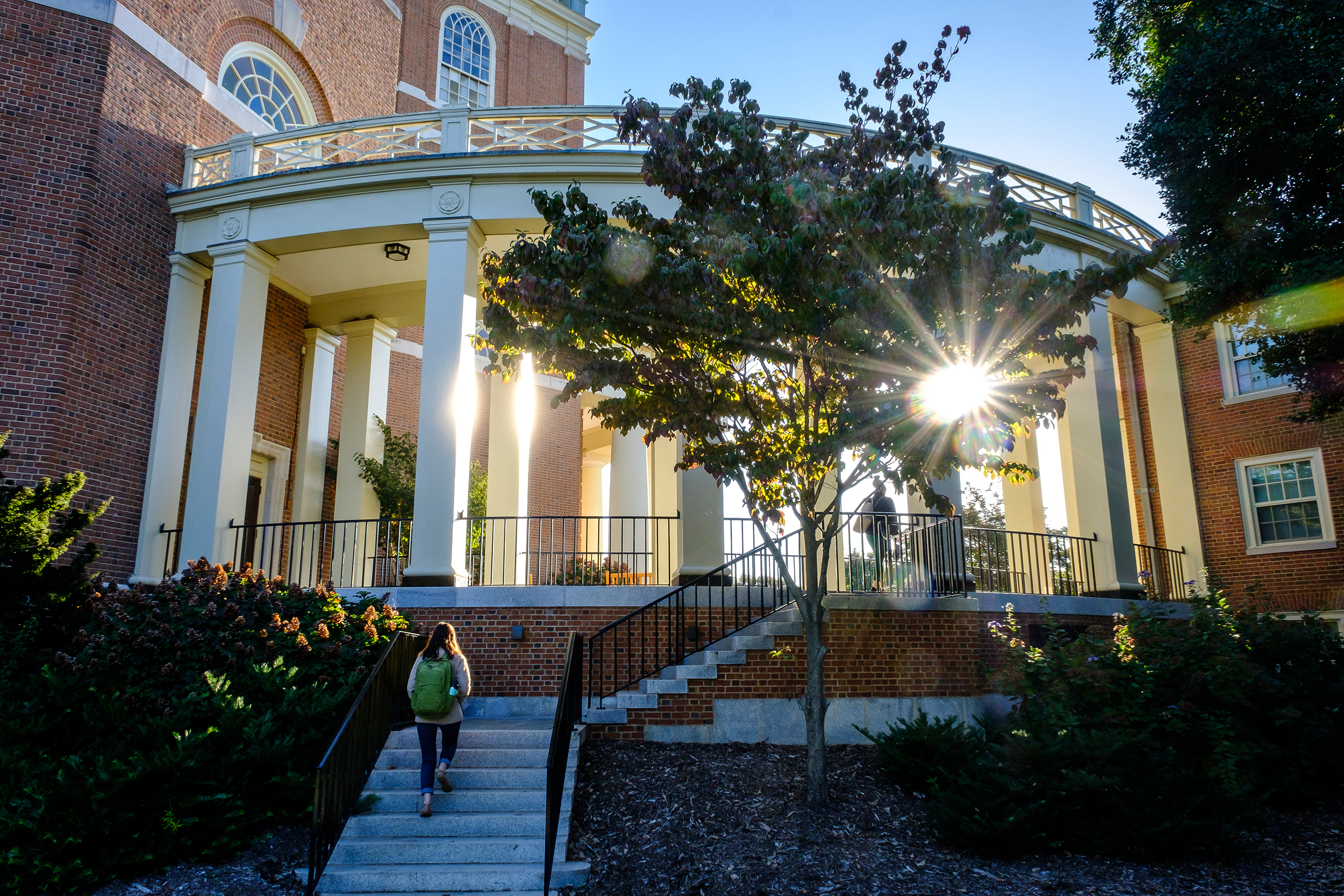Stories this week at Wake Forest
NOW VICE PRESIDENT TO VISIT CAMPUS
Kim Gandy, the executive vice president of the National Organization for Women, will speak at Wake Forest at 7 p.m. March 30 in Benson University Center’s Pugh Auditiorium. She will address “The New Face of Civil Rights: The Shift from Minorities to Gays and Lesbians.” The talk is sponsored by the women’s studies program, the Student Union, the Gay/Straight Student Alliance, the Women’s Issues Network and the Winston-Salem chapter of NOW. Gandy is available to talk with media following the question-and-answer session after the lecture.
STUDENTS GO HUNGRY TO SUPPORT HUNGER AWARENESS
More than 100 Wake Forest students will go hungry for 30 hours on March 26-27 to help fight hunger and poverty around the world. As part of the annual World Vision 30-Hour Famine, the students will fast in order to identify with those who are hungry while raising money through donations from sponsors. Last year, Wake Forest students raised more than $7,000 to contribute to the more than $6 million raised across the country. To arrange an interview with student organizers, call the News Service.
AMERICAN INVOLVEMENT IN KOSOVO
Richard Sears, Wake Forest politics professor and American foreign policy expert, can offer commentary on the reasons for NATO intervention in Kosovo. “NATO has a credibility issue and Clinton has an even bigger credibility issue,” says Sears. The close vote in the Senate raises a key question, he adds. “Is it wise to begin this kind of bombing, if Americans are not willing to eventually send in ground troops?”
ACTIVITY PYRAMID PROMOTES HEALTHY LIFESTYLE
Knowing how much exercise to get could be as easy as understanding the food pyramid, says Peter Brubaker, associate professor of health and exercise science and director of Wake Forest’s Cardiac Rehabilitation Program. The American College of Sports Medicine (ACSM) recently developed a physical activity pyramid, similar to the food pyramid, to help individuals understand how often, how hard and how long to exercise. “Like the food pyramid, the physical activity pyramid deals with portions, showing how often people should perform different types of activities for physical fitness,” Brubaker says. “It devotes the most space to those activities that should be done the most often, like taking the stairs, or working in the yard, which you should try to do every day.” Brubaker is able to address a range of topics concerning the physical activity pyramid, exercise programs and overall cardiac health. For an interview, call the News Service.
WAKE FOREST’S BOOK MECHANIC
Craig Fansler is a mechanic, but you won’t find him in a garage. Instead, Fansler is tucked away inside the Z. Smith Reynolds Library tinkering on books. “If a book is falling apart-just like a car-we can catch the problem and prevent more damage,” said Fansler, who repairs damaged books and documents as the head of preservation for the university. Fansler has repaired university ledgers dating back to the 1800s, as well as fragile family Bibles brought to him from community members. Rhoda Channing, director of the university’s library, said preserving books is part of a library’s responsibility to society. “Craig understands how important it is that our culture be available to future generations.” In addition to prolonging the life of library books, Fansler also makes books as a hobby.
HOW TO HANDLE A HARD-TO-HANDLE KID
In his new book, “How to Handle a Hard-to-Handle Kid,” C. Drew Edwards, a child psychologist and adjunct professor at Wake Forest, explains why some children are especially challenging. He spells out clear, specific strategies parents can use to address and correct problem behaviors with firmness and love. In addition to his clinical practice, Edwards teaches “Effective Parent/Child Relationships” at Wake Forest. To arrange an interview with Edwards, call 766-1467.
Categories: Campus Life, Community Impact, Happening at Wake
Media Contact
Cheryl Walker
media@wfu.edu
336.758.5237



